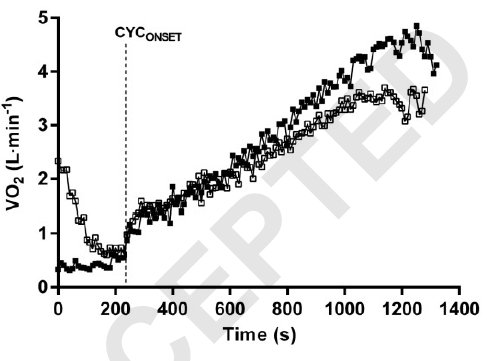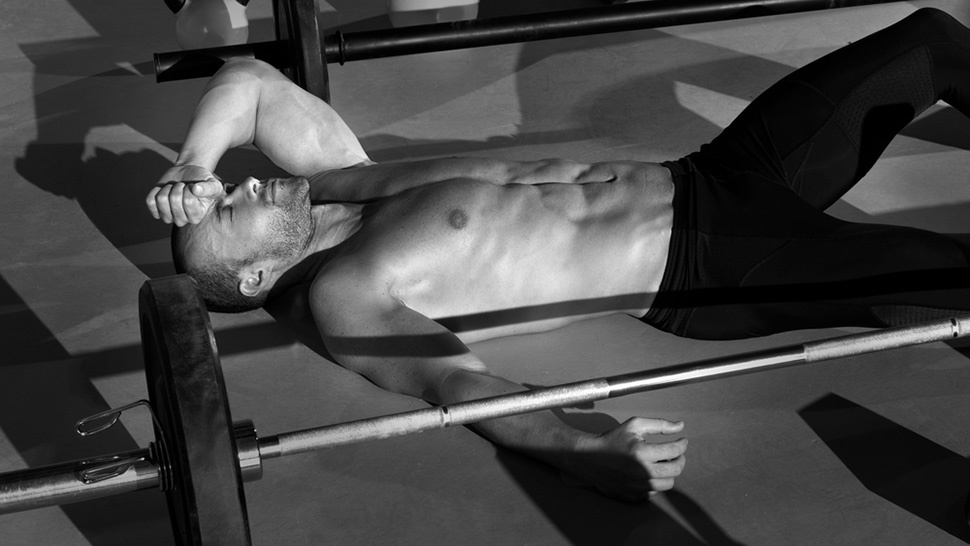Strenuous activity wears you out. No news there. But it turns out that exercising your biceps will make your legs just as tired as working out your quads. And for the first time, researchers seem to know why.
Researchers at Britain’s Nottingham Trent University tested subjects on two different exercise setups: one group did two rounds of intense leg exercises, the other did arms followed by legs. Each group’s second set of exercises showed about a 33% decline in performance — despite half of the subjects starting with fresh legs. Physiologically, this is puzzling: each muscle contains its own fuel (glycogen, ATP and phosphocreatine, for you science types), and your arms can’t steal energy stored away in your legs. So what gives?
The hypothesis is that, while fuel use is contained to the muscle being exercised, the buildup of metabolites in the blood affects the whole body. In other words, the lactate, hydrogen and potassium your arms spit out while you’re blasting curls will slow down your “fresh” legs almost as much as if you were grinding out squats, despite your quads having a full tank of fuel. So while exercise enthusiasts tend to work on each muscle group as its own ecosystem, it turns out the human body operates more like one integrated machine. [Runner’s World]
Imagine doing 10 minutes of intense arm-cycling. (Wait, you’ve never arm-cycled? It’s a hideous cross-training device where you basically use your arms to spin the pedals of a “bike.”) Anyway, you take a couple minutes of rest after the arm-cycling, then you hop on a normal bike and do an all-out time trial. Will your performance on the normal bike be affected by the prior arm-cycling?
I think for most of us, the intuitive answer would be “Duh, of course! You just did some tiring exercise, so of course you’re going to ride slower, even if the prior exercise used different muscles.” And in fact, according to a forthcoming article in Medicine & Science in Sports & Exercise by researchers at Nottingham Trent University in Britain, that is what happens. Surprisingly, the magnitude of the performance decline (~32%) is very similar to what previous studies have found after a similar bout of leg exercise (~34%)! But the interesting question is: why? What specifically causes you to go slower in this situation?
Previous studies of this protocol have shown that your leg muscles still have the same concentration of glycogen, ATP, and phosphocreatine — the main sources of fuel in the muscle itself — after the arm exercise, so that’s not the explanation. And this particular protocol involved short, very intense bouts of arm exercise (8 x 60s with 30s rest, followed by 4:00 break before the cycling), so it’s not a question of oxygen debt. Heart rate was still a bit elevated after the arm exercise, but by the end of the cycling test to exhaustion, it was actually lower than when the cycling test was performed fresh. In other words, the prior arm exercise prevented subjects from reaching their maximum heart rate during the cycling test. Here’s what the oxygen use (VO2) looked like during an incremental cycling test to exhaustion with (open squares) and without (closed squares) prior arm-cycling:



So what’s going on? This should be an easy question, but it’s really not. The hypothesis advanced by the authors of the paper is that the effect results from the accumulation of metabolites like lactate, hydrogen, and potassium ions in the blood. Unlike muscle energy stores, whose effects are local, increasing the level of metabolites in the blood affects the whole body. The researchers seem to be arguing that these effects are “mechanical”: the presence of metabolites in the blood affects the function of the muscles themselves. There’s another possibility, not discussed at all in the paper, which is that the brain senses metabolite levels which then contributes to the sensation of “central fatigue.” And of course, there’s the possibility that both of these mechanisms — along with others — contribute. I don’t know the answers here, but I think it’s fascinating that such a simple and “obvious” question can still be so controversial.
Image: Shutterstock/holbox
Thanks for installing the Bottom of every post plugin by Corey Salzano. Contact me if you need custom WordPress plugins or website design.


You must log in to post a comment.